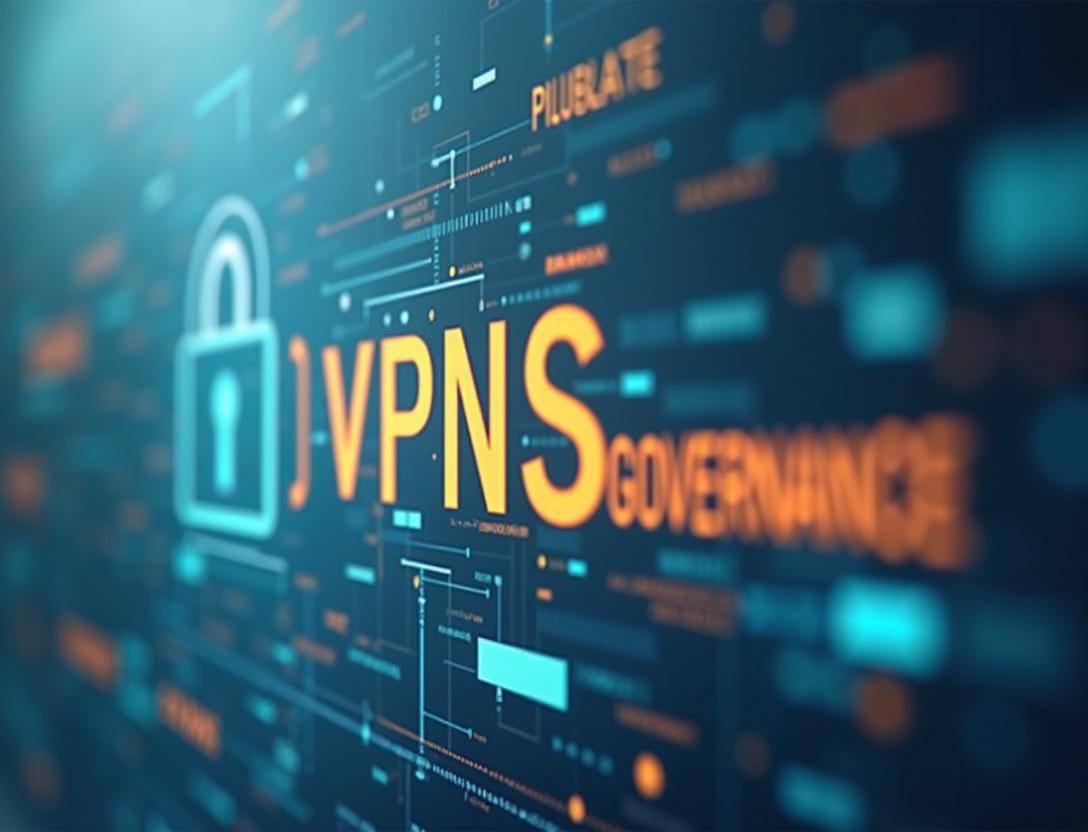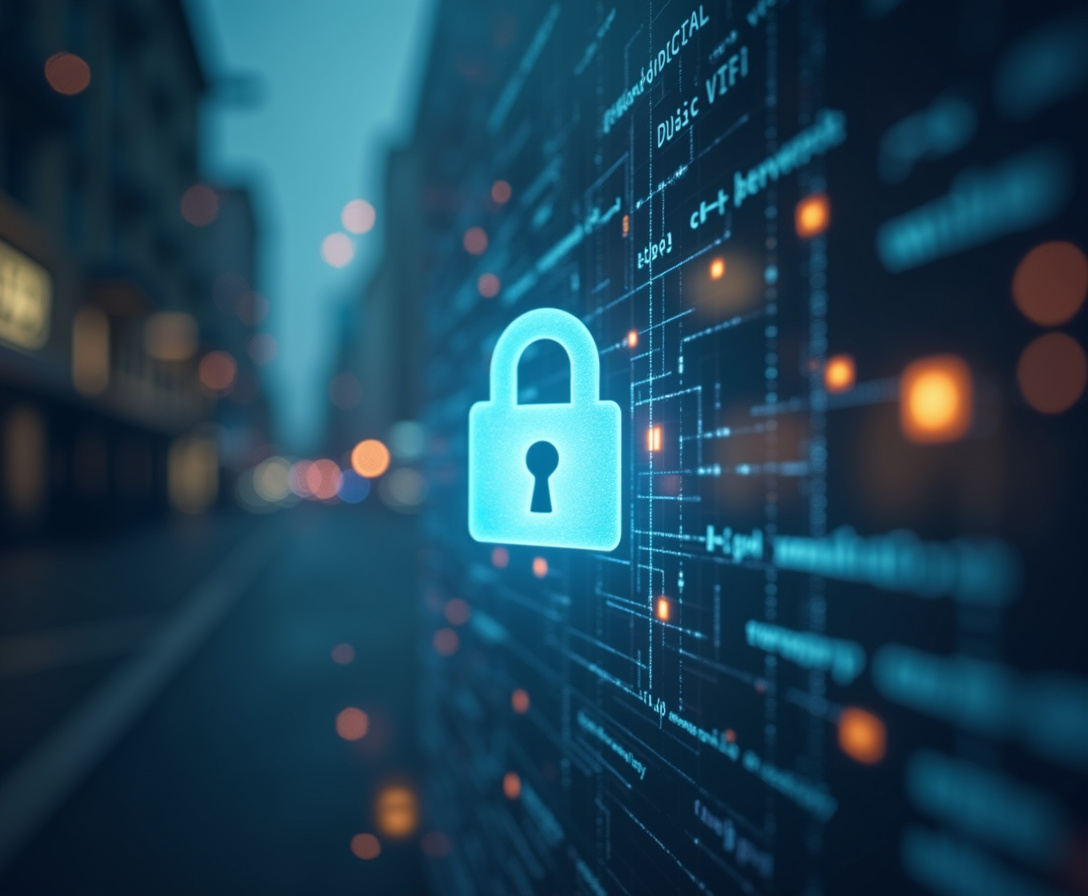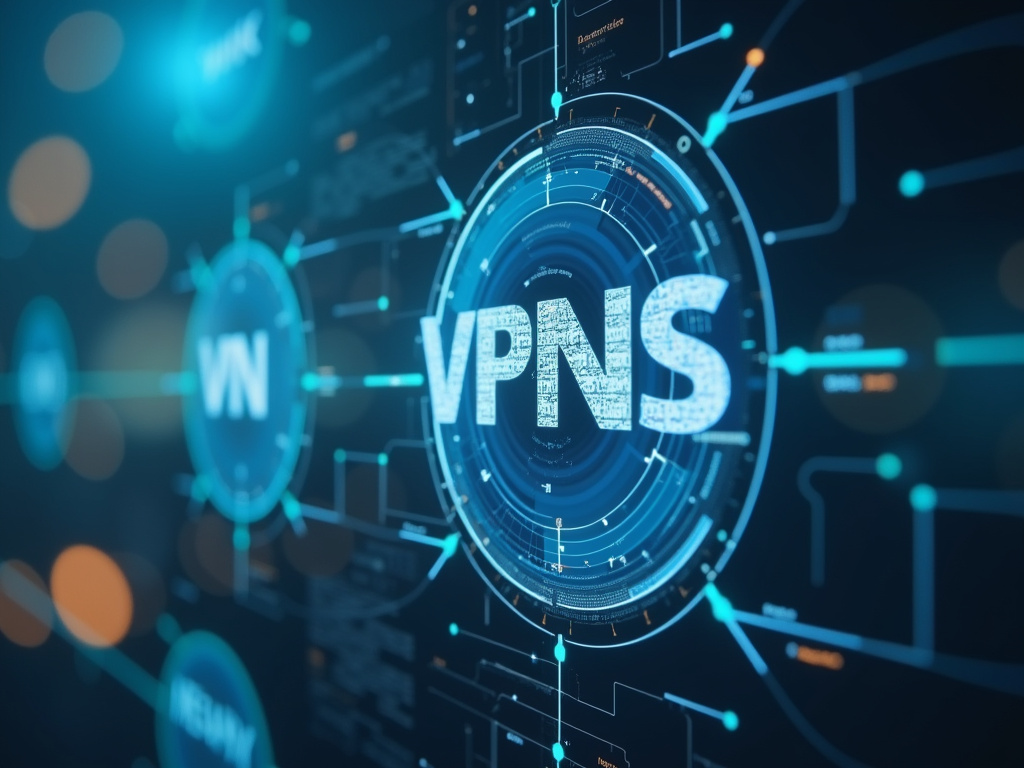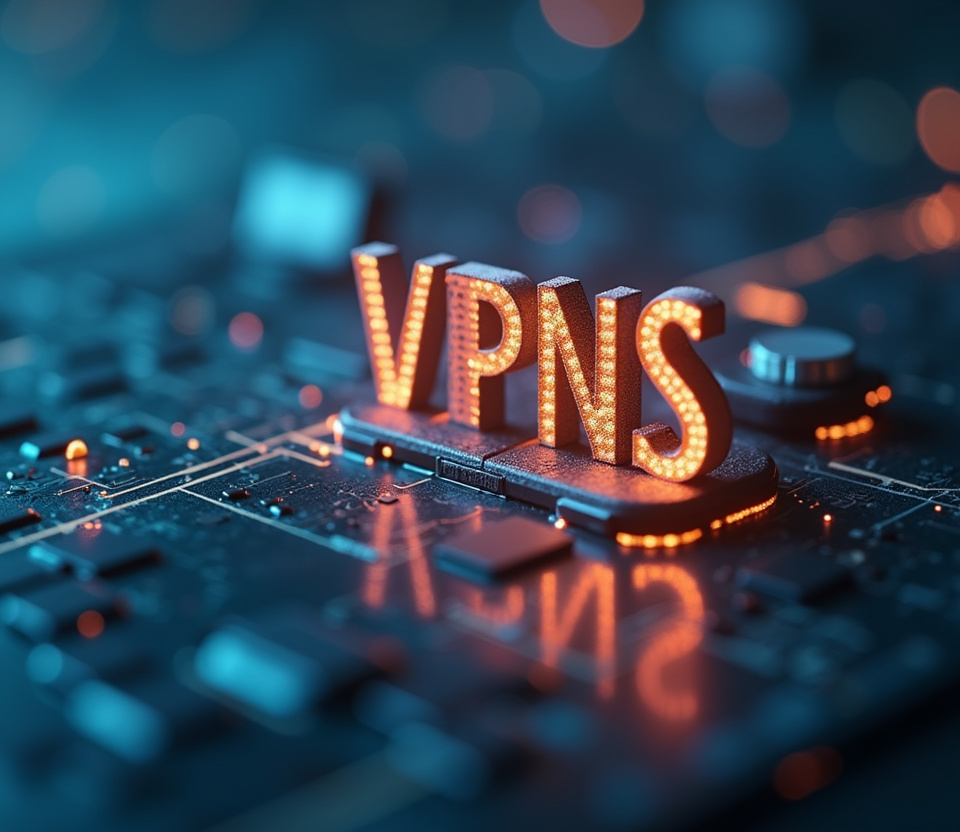VPNs for Municipal Governance: Securing Public Data

Table of Contents
municipal VPN
In the burgeoning digital era, municipal governance faces unprecedented challenges in safeguarding sensitive public data. As cities increasingly rely on interconnected networks and digital platforms to deliver essential services, the risk of cyberattacks and data breaches looms large. Public trust in local government hinges on its ability to protect citizen information, financial records, and operational data from unauthorized access or manipulation.
This necessitates a robust and comprehensive approach to cybersecurity, with Virtual Private Networks (VPNs) emerging as a critical component. This article will explore the vital role of VPNs in securing public data within municipal environments, analyzing their features and how they contribute to enhanced governance protection and communication safeguards. A provides a secure and encrypted tunnel for data transmission, effectively shielding sensitive information from prying eyes.
Remote access to governmental resources, a hallmark of modern municipal operations, introduces significant security vulnerabilities. Employees accessing networks from home or while traveling are often using unsecured connections, making them prime targets for hackers. A VPN encrypts all data transmitted over these connections, protecting sensitive information from interception.
Without a VPN, login credentials, confidential reports, and citizen data could be exposed to cybercriminals. The necessity of robust measures cannot be overstated. Municipalities handle vast amounts of personally identifiable information (PII), financial data, infrastructure management details, and law enforcement records.
A breach of this data can have devastating consequences, including identity theft, financial losses, disruption of essential services, and erosion of public confidence. Imagine a scenario where a hacker gains access to the city's water system controls. They could manipulate water pressure, contaminate the supply, or shut down the entire system, causing widespread disruption and potentially endangering public health.
A well-implemented VPN solution can significantly mitigate these risks by providing a secure channel for data transmission and access, ensuring that only authorized personnel can access sensitive information. Furthermore, implementing a VPN falls under the umbrella of responsible . Transparency and accountability are fundamental principles of good governance.
Breaches erode public trust and open the door to corruption. Suppose a city council's emails are intercepted, revealing backroom deals or unethical behavior. This could lead to public outrage, lawsuits, and even criminal investigations.
By prioritizing cybersecurity and investing in tools like VPNs, municipalities demonstrate their commitment to protecting citizen data and upholding the principles of responsible governance. The benefits extend beyond preventing data breaches. A secure VPN infrastructure creates a stable foundation for innovation and digital transformation.
Secure data sharing and encrypted communications facilitate collaboration between departments and agencies, enabling more efficient and effective delivery of public services. Consider the implications for critical infrastructure management: sewer and water systems, power grids, transportation networks, and emergency communications. Integrating these systems into smart city initiatives creates unprecedented opportunities for optimization and efficiency.
However, it also introduces new vulnerabilities. A cyberattack targeting these systems could have catastrophic consequences, disrupting essential services and endangering public safety. Municipalities must prioritize the security of these critical infrastructures by deploying robust cybersecurity measures, including VPNs, intrusion detection systems, and incident response plans.
Effectively, the offered by a VPN ensures that all data transmitted between municipal offices, remote workers, and external partners is protected from eavesdropping and tampering. This extends to internal communications as well. Sensitive discussions between city officials or law enforcement personnel can be protected from internal leaks or unauthorized surveillance.
Data privacy considerations also come into play. VPNs can help municipalities comply with data privacy regulations, such as GDPR (General Data Protection Regulation), by ensuring that citizen data is protected from unauthorized access or disclosure. This is particularly important for cities that collect and process large amounts of personal information.
The selection and implementation of a VPN for a municipal entity requires careful consideration of various factors, including the size of the network, the sensitivity of the data, and the budget constraints. Municipalities should conduct a thorough risk assessment to identify potential vulnerabilities and determine the appropriate level of security. This risk assessment should consider both internal and external threats, as well as the potential impact of a data breach on the city's operations and reputation.
VPN for government
The selection process must thoroughly evaluate the specific security protocols offered by different implementations. Understanding the technical nuances of each protocol is crucial for ensuring the chosen solution meets the municipality's specific security needs. For example, IPsec (Internet Protocol Security) is a widely used protocol that provides strong encryption and authentication for VPN connections.
It operates at the network layer, offering comprehensive protection for all data transmitted through the VPN tunnel. Its strength lies in its robust security features, making it suitable for protecting highly sensitive data. However, IPsec can be complex to configure and manage, requiring specialized expertise.
This complexity might necessitate hiring dedicated IT staff or outsourcing VPN management to a third-party provider, adding to the overall cost. Another popular protocol is OpenVPN, an open-source solution known for its flexibility and customizability. OpenVPN supports a wide range of encryption algorithms and authentication methods, allowing municipalities to tailor the security settings to their specific requirements.
The open-source nature of OpenVPN allows for community scrutiny, leading to potential security vulnerabilities being identified and patched quickly. It also offers strong support for various operating systems and devices, making it a suitable choice for organizations with diverse IT environments. The flexibility of OpenVPN, while advantageous, also requires a skilled administrator to configure and maintain it effectively.
Secure Sockets Layer (SSL) and Transport Layer Security (TLS) protocols are commonly used for securing web traffic and online transactions. They can also be used to establish VPN connections, providing a secure channel for accessing web-based applications and services. SSL/TLS VPNs are relatively easy to deploy and manage, making them a popular choice for remote access scenarios where ease of use is a priority.
However, they might not offer the same level of security as IPsec or OpenVPN, particularly when dealing with highly sensitive municipal data. Therefore, the choice of protocol should be aligned with a carefully assessed threat model and security requirements. In addition to encryption protocols, municipalities should also consider the authentication methods supported by the VPN solution.
Strong authentication is essential for verifying the identity of users and preventing unauthorized access to the network. Usernames and passwords alone are no longer sufficient in today's threat landscape. Multi-factor authentication (MFA), which requires users to provide multiple forms of identification, is a highly recommended security measure.
This could involve a password, a security token, and a biometric scan. MFA drastically reduces the risk of unauthorized access, even if a user's password is compromised. Biometric authentication, such as fingerprint scanning or facial recognition, can also be used to enhance security, especially for access to particularly sensitive systems.
However, implementing biometric authentication raises privacy concerns that must be carefully addressed. Deploying a VPN solution requires careful planning and execution. Municipalities should develop a comprehensive implementation plan that outlines the scope of the project, the roles and responsibilities of the various stakeholders, and the timeline for completion.
The implementation plan should also include detailed instructions for configuring the VPN server and client software, as well as security policies and procedures for managing the VPN. The plan should also address user training and support, ensuring that all employees understand how to use the VPN correctly and can troubleshoot common issues. The risk of human error is a constant threat to .
Effective training is critical to preventing mistakes that could compromise the security of the VPN and the data it protects. Once the VPN is deployed, it is essential to monitor its performance and security on an ongoing basis. Municipalities should implement a robust monitoring system that tracks key metrics such as VPN uptime, bandwidth usage, and security events.
Regular security audits should also be conducted to identify potential vulnerabilities and ensure that the VPN is operating effectively. Vulnerability scanning and penetration testing should be performed regularly to proactively identify and address security weaknesses. This constant vigilance directly supports best practices.
Training employees on the proper use of the VPN is also crucial. Employees should be educated about the importance of using the VPN for all work-related activities, as well as the security policies and procedures that govern its use. Regular refresher training should be provided to ensure that employees remain aware of the latest security threats and best practices.
This training should also cover topics such as phishing awareness, social engineering, and password security.
municipal VPN
Beyond the practical application of encryption, a strategically enhances the overall cybersecurity posture by offering granular access control. This means carefully defining who has access to what data and resources. Implementing role-based access control (RBAC) allows administrators to assign specific permissions based on job functions, limiting the potential damage from a compromised account.
For example, a finance clerk might need access to financial records, but shouldn't have access to law enforcement databases. RBAC, in conjunction with a secure , ensures a layered defense, making it more difficult for unauthorized individuals to gain access to sensitive data, even if they manage to bypass initial security measures. Furthermore, a VPN solution should integrate seamlessly with existing security infrastructure.
Compatibility with firewalls, intrusion detection systems, and security information and event management (SIEM) solutions is crucial for creating a holistic security ecosystem. A firewall acts as a barrier between the municipal network and the outside world, blocking unauthorized traffic. An intrusion detection system (IDS) monitors network traffic for suspicious activity, alerting administrators to potential attacks.
A SIEM system collects and analyzes security logs from various sources, providing a centralized view of the security posture. Integration with SIEM systems allows municipalities to collect and analyze security logs from the VPN and other security devices, providing valuable insights into potential threats and vulnerabilities. The ability to correlate events across different security systems enables faster detection and response to security incidents.
For example, if the VPN logs show a failed login attempt followed by successful access from a different IP address, the SIEM system can flag this as a potential security breach. Consider the implications for regulatory compliance. Many municipalities are subject to data privacy regulations, such as HIPAA (Health Insurance Portability and Accountability Act) for healthcare information, or state-level data breach notification laws.
A , when configured and used correctly, can help municipalities meet these compliance requirements by providing a secure means of transmitting and storing sensitive data. This can reduce the risk of fines and legal penalties associated with non-compliance. Moreover, a robust facilitated by a VPN protects against man-in-the-middle attacks.
These sophisticated attacks involve intercepting communication between two parties, allowing the attacker to eavesdrop or even modify the data being transmitted. By encrypting all data traffic, a VPN makes it much more difficult for attackers to successfully execute man-in-the-middle attacks. This is particularly important for protecting sensitive communications between city officials, law enforcement personnel, and external partners.
The scalability of a VPN solution is also an important consideration. As municipalities grow and evolve, their VPN needs may change. The VPN solution should be able to scale up to accommodate increasing numbers of users and devices, without compromising performance or security.
Cloud-based VPN solutions offer greater scalability than traditional on-premises solutions. They allow municipalities to easily add or remove users and resources as needed, without having to invest in additional hardware or infrastructure. In essence, the investment in a reliable serves as a crucial element in ensuring the continued delivery of essential public services, even in the face of burgeoning cyber threats.
By combining encryption, granular access control, and integration with existing security infrastructure, it strengthens the security posture and promotes better . Prioritizing this demonstrates a commitment to protecting both public assets and citizen trust. Building and maintaining public trust depends greatly on demonstrating a commitment to best practices in , including constant updates and employee training.
VPN for government
Addressing the challenges related to remote access is paramount when discussing . The increasing prevalence of remote work and the need for field personnel to access municipal resources necessitate a secure and reliable solution. However, simply deploying a VPN isn't enough.
Municipalities must also implement policies and procedures to govern its use and ensure that remote users are adhering to security best practices. One common challenge is ensuring that remote devices are adequately secured. Personal computers and mobile devices used for remote access may be vulnerable to malware and other security threats.
Municipalities should require remote users to install and maintain antivirus software, firewalls, and other security tools on their devices. They should also implement endpoint detection and response (EDR) solutions to monitor remote devices for suspicious activity and quickly respond to security incidents. Furthermore, organizations must implement strong password policies and require remote users to use strong, unique passwords for their VPN accounts.
Multi-factor authentication, as mentioned earlier, is also crucial for securing remote access. Regular security awareness training can help remote users identify and avoid phishing scams and other social engineering attacks. In addition to securing remote devices, municipalities should also consider implementing split tunneling.
Split tunneling allows remote users to access both internal municipal resources and the public internet simultaneously. While this can improve performance and reduce bandwidth consumption, it can also introduce security risks. If split tunneling is enabled, traffic destined for the public internet is not routed through the VPN, meaning it is not encrypted or protected by municipal security controls.
This can expose sensitive data to eavesdropping or interception. Therefore, municipalities should carefully evaluate the risks and benefits of split tunneling before implementing it. If split tunneling is enabled, they should implement additional security measures, such as web filtering and intrusion detection, to protect remote users from online threats.
Regular monitoring of VPN connections is vital to detect any abnormalities that might indicate a breach. This includes analyzing login attempts, data transfer volumes, and user activity patterns. Early detection can significantly reduce the impact of a security incident.
These actions support and enhance overall . The selection of a vendor offering a should take into consideration logging capabilities and reporting features. Detailed logs provide valuable information for security audits and incident investigations.
Customizable reports enable administrators to easily track key security metrics and identify potential vulnerabilities. Moreover, the chosen VPN should provide reliable technical support. Municipalities need access to expert assistance to troubleshoot issues and address security concerns promptly.
The vendor should offer multiple support channels, such as phone, email, and online chat, and should have a proven track record of providing timely and effective support. Consider the impact of a VPN outage on municipal operations. A reliable VPN solution should have built-in redundancy to ensure that it remains available even in the event of a hardware or software failure.
This might involve deploying multiple VPN servers in different locations or using a cloud-based VPN service with automatic failover capabilities. Maintaining uptime supports consistent protocols for employees and citizens alike. Ultimately, adopting a comprehensive approach to VPN security is essential to ensure that municipal data is protected from unauthorized access and misuse.
This includes implementing strong security policies, providing regular security awareness training, monitoring VPN connections, and selecting a reliable vendor with robust support capabilities. These combined actions contribute significantly to responsible .
VPN for government
Future trends in will likely focus on enhanced automation, integration with emerging technologies, and a stronger emphasis on threat intelligence. Automation can streamline VPN management tasks, such as user provisioning, configuration updates, and security monitoring. This frees up IT staff to focus on more strategic initiatives.
For example, automated threat detection and response capabilities can quickly identify and mitigate potential security incidents, reducing the risk of data breaches. Integration with emerging technologies, such as artificial intelligence (AI) and machine learning (ML), can further enhance the security of VPNs. AI and ML can be used to analyze network traffic patterns, identify anomalies, and predict potential security threats.
This can enable municipalities to proactively address security vulnerabilities before they are exploited. Imagine an AI-powered system that can identify and block malicious traffic attempting to exploit a zero-day vulnerability in a VPN server. A greater emphasis on threat intelligence will also be crucial.
Municipalities need access to up-to-date information about the latest security threats and vulnerabilities. This information can be used to proactively harden VPNs and other security systems against attack. Threat intelligence feeds can provide real-time updates on emerging threats, allowing municipalities to quickly respond to new risks.
Sharing threat intelligence with other municipalities and government agencies can also improve overall cybersecurity posture. Quantum-resistant cryptography is another area of future development that warrants attention. As quantum computers become more powerful, they will be able to break existing encryption algorithms.
Quantum-resistant cryptography uses new algorithms that are designed to withstand attacks from quantum computers. Municipalities should begin planning for the eventual transition to quantum-resistant cryptography to ensure that their data remains secure in the future. Maintaining strong will require continuous adaptation and innovation.
The increasing use of cloud-based services will also have a significant impact on VPNs. Municipalities are increasingly migrating their data and applications to the cloud, which requires secure access to cloud resources. VPNs can be used to establish secure connections to cloud providers, ensuring that data transmitted to and from the cloud is protected from unauthorized access.
However, cloud-based VPNs also introduce new security challenges, such as managing access control and ensuring data sovereignty. Security teams must constantly iterate and update their policies regarding protocols. In conclusion, VPNs play a critical role in securing public data within municipal environments.
By providing a secure and encrypted tunnel for data transmission, VPNs can significantly reduce the risk of cyberattacks and data breaches. Municipalities must carefully evaluate their VPN needs, select a solution that meets their specific requirements, and implement policies and procedures to govern its use. Remember, the ultimate goal is to uphold by safeguarding citizen data and maintaining public trust.
By adopting a proactive rather than reactive posture, municipalities can better secure their valuable public data assets. Constant vigilance, investment, and adaptation are key to maintaining a robust security posture in a constantly evolving threat landscape. Continued learning and professional development will be essential for all security professionals.
Stay Updated
Get the latest VPN news, tips, and exclusive deals to your inbox.




